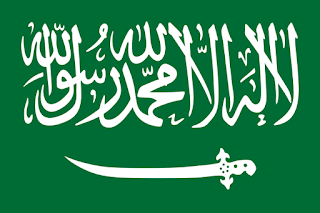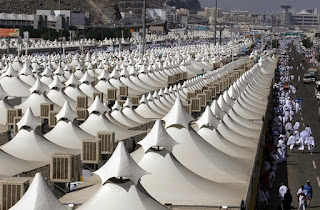Custodian of the Two Holy Mosques King Salman bin Abdulaziz Al Saud was pledged allegiance as the King of the Kingdom of Saudi Arabia on 3, Rabi II, 1436H corresponding to 23, January, 2015. King Salman spent more than two and half years as the Crown Prince and Deputy Premier due to the Royal order issued on 18, June, 2012 and remained in his post as the Defense Minister based on the Royal order issued 5, November, 2011. King Salman served as Governor of Riyadh Region for more than 50 years.
King Salman bin Abdulaziz Al Saud was born on 15, Shawwal, 1354H corresponding to 31, December, 1935 in Riyadh. He is the 25th son of the Kingdom of Saudi Arabia's founder late King Abdulaziz Al Saud.
Custodian of the Two Holy Mosques King Salman bin Abdulaziz Al Saud grew up with his brothers at the Royal Palace in Riyadh where he accompanied his father in official meetings with the Kings and presidents of the world.
Custodian of the Two Holy Mosques King Salman bin Abdulaziz Al Saud started his early education at the school of princes in Riyadh where he learned the religious lessons and modern sciences. King Salman finished memorization of the Holy Quran at the age of ten while he was attending the lessons delivered by Sheikh Abdullah Khayat, Imam and Preacher of the Grand Mosque.
King Salman bin Abdulaziz has expressed his interest in sciences and later, he received numerous honorary academic certificates and awards, including:
- Honorary Doctorate from Islamic University in Madina.
- Honorary Doctorate of Literature from Umm Al Qura University in Makkah.
- Honorary Doctorate from Milia Islamia University in Delhi in recognition for his humanitarian efforts and charitable commitment to support education and his distinctiveness as a statesman.
- Honorary doctorate in law from Waseda University in Japan, in recognition of his outstanding contributions in the Kingdom and the world.
- "Kent" Medal for Sciences and Humanities, from Berlin-Brandenburg Academy in recognition of his contributions to science.
Custodian of the Two Holy Mosques King Salman bin Abdulaziz was appointed as the Governor of Riyadh Region, which is one of the biggest regions and capital of the Kingdom of Saudi Arabia, in an important phase of this city’s history. King Salman was appointed as Acting Governor of Riyadh Region at age of 19 on 11, Rajab, 1373 corresponding to 16, March, 1954. After a year, he was appointed as the Governor of Riyadh Region at the rank of minister on 25, Sha'ban, 1374 corresponding to 18, April, 1955. At Government Palace in Riyadh, King Salman practiced his duties as the Governor of Riyadh Region.

King Salman has served as the Governor of Riyadh Region for more than five decades where he supervised the big transfer of Riyadh from a mid-sized town with a population of 200,000 people into one of the fastest growing capital in the Arab World with more than 5,000,000 people. King Salman faced many challenges in supporting development and growth march, but he proved with his high competence to carry out achievements and initiatives where the Saudi capital becomes today one of the richest cities in the region and regional center for travel and trade.
During King Salman’s period as the Governor of Riyadh Region, Riyadh witnessed many achievements in the infrastructure projects, including highways, schools, hospitals, universities, museums, sports stadiums and preparation of Riyadh Metro project. Riyadh included many prominent architectural landmarks.
Minister of Defense
On November, 2011, Prince Salman bin Abdulaziz was appointed as Minister of Defense of the Kingdom of Saudi Arabia which includes land, air and naval forces and air defense. During his era, the Ministry of Defense witnessed an inclusive development in the whole sectors of the Ministry in training and arming. He also successfully supervised the largest military drill in the history of the Saudi armed forces (Abdullah Sword).
Other Posts, Contributions
In addition to his post as the Governor of Riyadh Region, King Salman bin Abdulaziz assumed many important posts in the Kingdom of Saudi Arabia, including:
• Chairman of High Commission for the Development of Riyadh.
• Chairman of High Commission for the Development of Al-Diriyah.
• President of Council of Trustees of King Fahad National Library.
• Chairman of King Abdulaziz Foundation.
• Secretary General of King Abdulaziz Islamic Foundation.
• Honorary President of Prince Salman Social Center.
• Chairman of the Board of Directors of Riyadh Charitable Foundation for Science, including Prince Sultan University and Prince Salman Science Oasis.
• Honorary Chairman of the Board of Directors of the Friends Committee of Patients in Riyadh.
• Chairman of the Board of Trustees of the Abdulaziz bin Baz Charity.
• Honorary Chairman of the Board of Directors of the Abdulaziz bin Baz Charity.
• Chairman of the Board of Directors of Prince Salman Charitable Housing.
Chairman of the Board of Directors of Charitable Society for Orphans in Riyadh Region.
Charitable Works
King Salman is well- known for his charitable works and efforts. He is the President of the Assembly of Prince Salman Center for Disability Research, Honorary President of the Assembly of Prince Fahd bin Salman for Patients with Kidney Failure, Honorary President of the Saudi Center for Organ Transplantation and many other associations.
Since 1956, King Salman assumed the presidency of many humanitarian and service committees which took over the relief and aid responsibilities of supporting many of the stricken regions around the world, whether the regions affected by war or natural disasters. Custodian of the Two Holy Mosques King Salman bin Abdulaziz won many medals due to his humanitarian efforts from Bahrain, Bosnia and Herzegovina, France, Morocco, Palestine, Philippine, Senegal, United Nations and Yemen.
Associations and Organizations Abroard Activities Chaired by King Salman:
• Chairman of the Committee to donate to the victims of Suez in 1956.
• Head of the Main Committee to Collect Funds for Algeria in 1956.
• Chairman of the People's Committee to Help the Families of the Martyrs of Jordan in 1967.
• Chairman of the People's Committee to Help the Palestinian People.
• Chairman of the People's Committee for the Relief of the Victims of Pakistan in 1973.
• Chairman of the People's Committee to support the War Effort in Egypt in 1973.
• Chairman of the People's Committee to Support the War Effort in Syria in 1973.
• Chairman of the Committee for the Relief of Local Victims of the Floods in Sudan in 1988.
• Chairman of the Local Committee to Provide Aid and Shelter to Kuwaiti Nationals Following the Iraqi Invasion of Kuwait in 1990.
• Chairman of the Local Committee to Receive Donations for Those Affected by Floods in Bangladesh in 1991.
• Chairman of the High Commission to Collect Donations for Bosnia and Herzegovina in 1992.
• Chairman of the Kingdom's Exhibition between Yesterday and Today which is Held in a Number of Arab and European Countries, the United States and Canada during the period in 1985/1992.
• Chairman of the Supreme Committee to Collect Funds for Al-Quds Uprising in Riyadh in 2000.
Medals
Custodian of the Two Holy Mosques King Salman bin Abdulaziz Holds King Abdulaziz Scarf of the First Class which is considered the highest medal in the Kingdom of Saudi Arabia. He also won many medals such as:
• A medal on the occasion of two thousand years after establishing the city of Paris awarded him the medal by President Jacques Chirac in
• Paris in 1985.
• A medal of intellectual efficiency, where he was decorated by the King of Morocco Hassan II in Casablanca in 1989.
• Award of Disabled Children Association in the Kingdom Saudi Arabia for the humanitarian service.
• Golden medal of Bosnia and Herzegovina for his support and his efforts to liberate Bosnia and Herzegovina.
• The Bosnian medal for Islamic benevolence of the first class for his effort in supporting Islam and Muslims in Bosnia and Herzegovina.
• The United Nations shield to reduce the effects of poverty in the world.
• Al-Quds Star medal in appreciation to his extraordinary works which stress the sacrifice and courage in serving the Palestinian people.
• Sktona Medal which is Considered the highest decoration in the Republic of the Philippines in appreciation of his active contributions in the humanitarian activities and supporting the charitable associations in addition to his efforts in upgrading and improving the definition of the Islamic Culture.
• The Greatest and highest medal in the Republic of Senegal.
• Baden Powell Fellowship granted by King of Sweden Carl XVI Gustaf.
• Bahrain award for humanitarian work for the Gulf Cooperation Council.
• Award of the International Special Olympics in Middle East and North Africa which is considered the highest award for his efforts in serving disabled people in the Kingdom and encouraging scientific research in disability field.
Source : http://www.spa.gov.sa/king-cv.en.php





